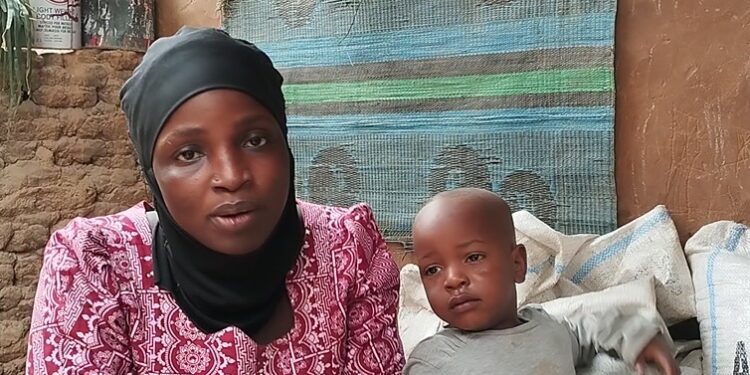The horrors of the attack on Baga town in January 2015, and the survival journey, is still fresh in the memories of Fatsuma Adamu.
Fatsuma, a 40-year-old mother, managed to escape with her 4 children. The memories of trekking about 200 kilometers from Baga to Maiduguri still haunts Fatsuma’s mind 10 years after. The sound of gunshots together with the wailing of women and children prepared Fatsuma’s mind that they must struggle to safety. They heard gunshots everywhere. Women and children were crying all around. Her husband was out for his fishing business when the attack came in.
Fatsuma never saw him again! Fatsuma and her children were hiding in one corner of their home for two days, with nothing to eat; only water! “Whenever I noticed that Adama, my 7-months old daughter’s cry would attract attention, I filled her mouth with my liquid-less breast to prevent her cries from exposing us”, said Fatsuma.
Read Also:
Baga town is in the northeast of Borno state, Nigeria, approximately 190 kilometers from the state capital. The town lies on the borders of the Lake Chad and is host to fishermen and farmers. When armed conflict hit the town in 2015, the entire community was displaced.
Fatsuma and her family had to come out from their hiding place after 2 days, to embark on the long journey to safety. After 5 days of trekking, she managed to reach Maiduguri together her children in a very difficult condition. Fatsuma, being a nursing mother, was exhausted from the trek as she had strapped her seven-month-old baby to her back and carried her three -year-old child with her hands.
“I thought I would lose my legs. They were swollen and I could hardly walk. I got some relief after one woman helped to massage the legs with warm water after arriving in Maiduguri. I am happy I regained energy and I can walk,” narrated Fatsuma.
Through her parent’s support, Fatsuma was able to move from Maiduguri to Geidam town in the north of Yobe state, about 300 kilometers northwest of Maiduguri. Unfortunately, Geidam was equally attacked 3 years after, and Fatsuma, her children were again, displaced to Gashua, 100 kilometer west of Geidam town.
Fatsuma was amongst the over 130 families that received cash for livelihood, provided by the ICRC in Gashua in 2023.
With her existing skills in groundnuts oil extraction and baking, it was easy for her to start and sustain a business.“Before the support, I was in a serious situation. No food for the family, no money to rent a house and nothing to sell. I started collecting groundnuts on credit, extract the oil and pay after selling, but sometimes people refused to give me the groundnuts on credit and insisted that I pay first.” Said Fatsuma.
With the support she received, Fatsuma’s business is now thriving as she can afford a place to live, feed my children and pay for their medical bills. She has since expanded the business beyond groundnut oil extraction and making kuli-kuli (groundnut cakes) and kosai (bean cakes), to the selling kitchen utensils and other household items such as rubber buckets, water flasks, jugs, plates, spoons, and cups.
“My business is now doing great. Although I don’t know if my husband is still alive or not, at least I can afford for a place to stay and can feed myself and our 4 children,” says Fatsuma.
Fatsuma is one amongst hundreds of thousands of displaced communities affected by the decade-long armed conflict in the northeast of Nigeria. The need for humanitarian actors to provide livelihood support cannot be overemphasized.
Aliyu Dawobe is with the International Committee of the Red Cross, Abuja.






















 You can install this WP plugin on your website from the WordPress official website:
You can install this WP plugin on your website from the WordPress official website: 